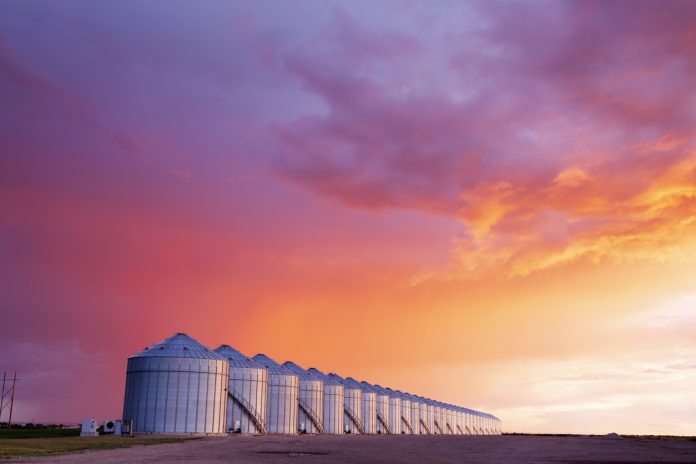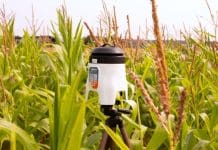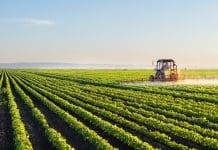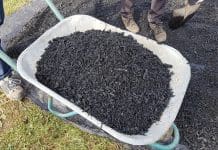Open Access Government outlines the agricultural policy priorities of the governments of Canada and Ontario, with commentary on supporting farmers, producers, and agri-food businesses in the country
In late January 2025, we learned that the Ontario Government has increased its annual funding for the Risk Management Program (RMP) from $150 million to $250 million. This increase aims to enhance support for farmers and the province’s $51 billion agricultural and food sector. The additional $100 million will help farmers respond to market challenges while boosting their long-term competitiveness and business confidence.
“Our government promised farmers we would continue to expand and enhance RMP, and with this historic investment, we have delivered. To Ontario’s world-class farmers, know that our government remains focused on strengthening your resilience and competitiveness, no matter what headwinds may come our way,” said Rob Flack, former Minister of Agriculture, Food and Agribusiness.
The $100 million increase will be implemented over three years, starting with a $30 million boost for the 2025 program year, resulting in an annual total of $250 million by 2027. Producer premiums will remain at 35% of government funding, and the current phase-in approach will continue. This builds on the previous $50 million increase to the RMP in 2020 and reforms allowing unused funds to be carried over for future claims.
The RMP supports over 383,000 jobs and contributes $24 billion to Ontario’s agri-food supply chain, benefiting around 8,500 farms that produce various agricultural products through the Self-Directed Risk Management stream. “This investment will provide Ontario’s farmers with added confidence and certainty at the exact time it is needed most given growing market instability,” commented Drew Spoelstra, President of the Ontario Federation of Agriculture. (1)
Agricultural policy: Dairy processing
The governments of Canada and Ontario have invested up to $7.18 million through the Sustainable Canadian Agricultural Partnership (Sustainable CAP) in 70 projects aimed at modernizing dairy processing and enhancing food safety. This cost-shared funding is expected to generate about $22 million in capital investments and ensure a reliable supply of safe, high-quality Ontario milk. Successful applicants can receive up to $200,000 in cost-shared funding to improve processing efficiency and food safety. This funding can cover new or refurbished equipment costs, one-time training, and more.
“There’s no doubt that our dairy processors work hard to ensure Canadians can enjoy their top-quality products.
With funding from the Sustainable Canadian Agricultural Partnership, this initiative is helping processors make important updates to their facilities so they can meet the growing demand for their products,” said the Honourable Lawrence MacAulay, former Federal Minister of Agriculture and Agri-Food.
“Ontario’s dairy processors have shown remarkable growth over the last several years and continue to produce safe, high-quality dairy products for domestic and international consumers. The success of the Dairy Processing Modernization Initiative underscores the health and vitality of Ontario’s growing dairy industry, and its ability to rapidly seize opportunities to modernize and increase processing capacity and food safety,” commented former Minister, Rob Flack.
“The Dairy Processing Modernization Initiative is supporting Ontario dairies to grow and meet the increasing demand for dairy products by helping to modernize their facilities and improve productivity. The Ontario government’s commitment to grow this important sector is much appreciated and will help to ensure that it continues to play a pivotal and dynamic role in Ontario’s agri-food industry,” added Christina Lewis, President of the Ontario Dairy Council.
Here are three examples of the funded projects:
- Four All Ice Cream (Waterloo) received up to $200,000 for a walk-in cooler, pasteurizer, and plate heat exchanger to boost productivity.
- Ontario Water Buffalo Co. (Hastings County) received up to $53,925 for a batch freezer, heat combination machine, and pasteurizer to increase production and food safety.
- Sargent Family Dairy (Durham Region) was granted up to $40,609 for a mechanical curd mill and cream separator to improve efficiency.
The Sustainable CAP initiative is a $3.5 billion, 5-year investment by federal, provincial, and territorial governments to enhance Canada’s agriculture and agri-food sectors, featuring $1 billion in federal programs and a $2.5 billion cost-shared commitment. (2)
Canada’s agricultural sector
Honourable Kody Blois, former Minister of Agriculture and Agri-Food and Rural Economic Development, stated in March 2025 that ensuring the resilience of Canada’s agricultural sector and providing a competitive advantage for Canadian agricultural products are among his top priorities. To support these goals, the Canadian Food Inspection Agency (CFIA) is working to eliminate unnecessary red tape and burdens, ensuring that our processes and regulations foster prosperity for agricultural producers, agri-food businesses, and communities across Canada.
These measures include the following:
- Accelerating product approvals to provide alternatives to U.S.-sourced animal feed.
- Aiming to align Canada’s enhanced feed ban for bovine spongiform encephalopathy (BSE) with U.S. requirements.
- Addressing concerns from stakeholders and creating a level playing field for Canadian producers by advancing key regulatory changes that support industry growth and enable fair trade.
- Eliminating outdated prescriptive requirements and fostering innovation to allow industry-led initiatives That meet consumer demands and adapt to evolving market conditions.
“Canada’s farmers, producers, and agri-food businesses are essential to our economy, and we are committed to ensuring they have the tools and support they need to succeed at home and on the world stage,” the former Minister Blois affirmed. (3)
Choosing to buy food that is grown and made in Ontario
Recently, we learned that safeguarding Ontario’s local agriculture and food industry is crucial for maintaining a self-sufficient and strong food supply chain. During Local Food Week, which ran from June 2nd to 8th, 2025, the Ontario government acknowledged the significant contributions of food processors, farmers, distributors, retailers, and restaurateurs that Ontario families rely on.
It is now vital to buy locally grown and produced food to help protect the 871,000 jobs and nearly $51 billion that the agriculture and food sector contributes to the province.
“Across the province, we have more than 48,000 farms and 5,200 food processors and food manufacturers working 365 days a year growing, harvesting and making delicious food right here at home. By choosing to purchase what is grown and made in Ontario, consumers are supporting our farmers and communities, strengthening the economy and protecting our local food supply chain,” said the Honourable Trevor Jones, Minister of Agriculture, Food, and Agribusiness for the Ontario Government.
Ontario’s Local Food Report highlights businesses that are strengthening the province’s local food supply chain and supporting its economy.
The Local Food Report also presents the Foodland Ontario Retailer Awards program. Each year, grocery stores across the province submit photos of creative and innovative displays that promote locally grown, fresh, in-season fruits and vegetables. These displays encourage and educate consumers to identify and purchase locally grown produce. This year, 60 grocery stores received 64 awards, and Minister Jones kicked off the award presentations at Metro #73 in Mississauga.
“Supporting Canadian products and buying local is not a new concept for Metro,” said Joe Fusco, Senior Vice President, Metro. “Our partnership with Foodland Ontario reflects our commitment to offering fresh, locally grown produce to our customers. We’re especially proud of our team at Metro #73 and produce manager John Leonardi, whose award-winning displays help bring the best of Ontario produce to life in our stores,” Joe Fusco continued. (4)
Agriculture and agri-food: Looking ahead
As the Right Honourable Mark Carney assumes the role of Prime Minister of Canada, we would like to extend our heartfelt wishes for success to him and his cabinet, including the Honourable Heath MacDonald, the Minister of Agriculture and Agri-Food. (5)
Minister MacDonald’s leadership will be essential as he tackles the complex and vital policies discussed in this editorial, reflecting on past achievements while looking ahead to future challenges and opportunities in the agri-food sector. Similarly, we wish the best for the Honourable Trevor Jones at the Ontario Government. (6)
References
- https://news.ontario.ca/en/release/1005662/ontario-increasing-support-forfarmers
- https://news.ontario.ca/en/release/1005582/governments-investing-inontarios-dairy-processing-sector
- https://www.canada.ca/en/food-inspection-agency/news/2025/03/statementfrom-the-honourable-kody-blois-minister-of-agriculture-and-agri-food-andrural-economic-development.html
- https://news.ontario.ca/en/release/1005987/protecting-the-good-things-thatgrow-in-ontario
- https://www.pm.gc.ca/en/cabinet
- https://www.ola.org/en/members/all/trevor-jones











